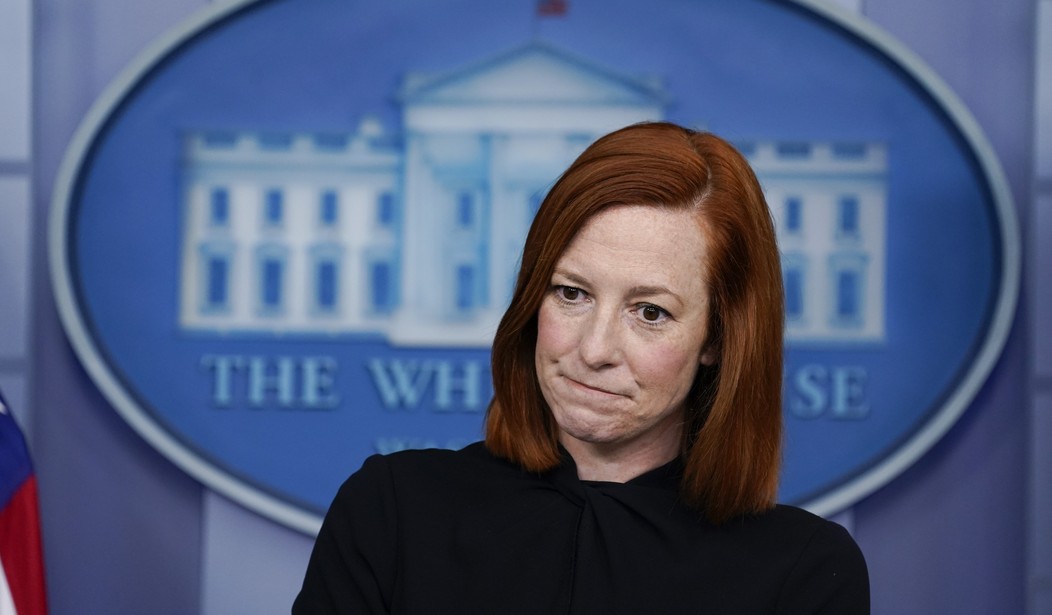Getting straight talk from the Biden administration on anything can be challenging these days, and no more so than on the issue of abortion, as illustrated by an exchange earlier this week between EWTN’s Owen Jensen and White House Press Secretary Jen Psaki.
Psaki announced that President Biden is reversing his predecessor’s policy of denying federal funds to any group or program that promotes or performs abortions. President Donald Trump’s policy had denied an estimated $60 million a year to Planned Parenthood (PP), the biggest provider of abortion services in the country.
By reversing Trump’s decision, Biden was effectively forcing millions of Americans who view abortion as child-murder to pay for something they unalterably oppose as a matter of morality and conscience.
So, as reported by Christian Headlines, Jensen asked Psaki a simple, straightforward and obvious question: “Why does the Biden administration insist that pro-life Americans pay for abortions and violate their conscience?”
Psaki’s response was a classic illustration of BBS, the Baghdad Bob Syndrome of denying the obvious while somehow maintaining a straight face:
Well, first, that’s not an accurate depiction of what happened, and I know we want to be accurate around here. “None of the funds appropriated under this title shall be used in programs where abortion is a method of family planning,” that is written into the Public Health Service Act, and it specifically states that.
Unlike so many of the present members of the White House Press Corp, Jensen did not then play the part of the good little White House toady and simply accept at face-value Psaki’s response.
No, Jensen committed the unpardonable sin of actually asking a pointed follow-up question that clearly exposed the fallacy underlying Psaki’s question-begging response: “But we know there’s indirect subsidies, money that’s fungible, that can’t be traced. We know that. Come on.”
Without batting an eye, looking away, clearing her throat, shuffling behind the podium, or anything else that might give evidence of discomfort over having to defend the indefensible, Psaki challenged Jensen, asserting, “That is not how it works. That is the law. So I’m stating what the law is and how it is implemented legally by these organizations.” Then she recognized another, more easily led reporter for a different question.
Jensen is right, of course, and Psaki almost certainly knows it, as do the others in the room. Maybe it’s true PP’s fastidious accountants do whatever is necessary to keep that $60 million in tax dollars separate on the books from the rest of the group’s revenues received for slaughtering innocent unborn boys and girls in their mothers’ wombs and selling their organs and other tissues for profit.
But fungibility means every one of those 60 million tax dollars going to PP is a buck that would otherwise have to come from the group’s own coffers, thus enabling it to kill countless more unborn babies that might otherwise have lived.
As somebody who has been an investigative editor and reporter for decades, I know how critically important follow-up questions like that asked of Psaki by Jensen are to the process of holding government officials accountable for their words and actions.
Every journalist worth his or her salt knows the full truth is almost never given in response to the first question. Getting there requires two, three, many follow-ups and not infrequently being a little pushy in demanding answers. Real journalists know it’s better to be respected than liked.
Asking tough questions is always essential to ensuring a credible process in public policy, a fact highlighted quite well, also earlier this week, by Focus on the Family President Jim Daly, writing in an email update:
I was reminded of my friend and former colleague, Susie Ripley. During my tenure as vice president of Focus on the Family’s international division over 20 years ago, I asked Susie to attend the Beijing Women’s Conference on behalf of the ministry.
During one of the sessions related to women’s rights, Susie was given the opportunity to ask a question. She raised the issue of females in the womb and asked if both women had rights.
Nobody could – or would – answer her question.
The primary reason they were speechless was because the killing of pre-born children presents an indefensible position. If you demand (as you should) that a woman’s rights deserve to be protected, then you cannot simply ignore the dignity of the little girl (or boy) in her womb.
America’s public policy discussions and debates would be so much better for everybody involved if journalists in the nation’s capital showed half as much respectful grit as shown by Susie Ripley in Beijing.
And unlike the grandstanding propagandists masquerading as journalists in the White House press corps of the Trump years, Jensen did what real reporters and editors should do, respectfully asking tough follow-up questions to force government spokesmen to make a choice — do they respond factually and honestly, or do they dance, spin, evade or prevaricate? Or some combination of all four?
By the way, I’ve served my time on both ends of the government spokesman/questioning reporter process, having been prior to my present profession a spokesman for a federal agency and the Republican National Committee during the Reagan years, and for a Republican senator and two Republican representatives before that.
It’s so much easier when you stick to the facts.










Join the conversation as a VIP Member